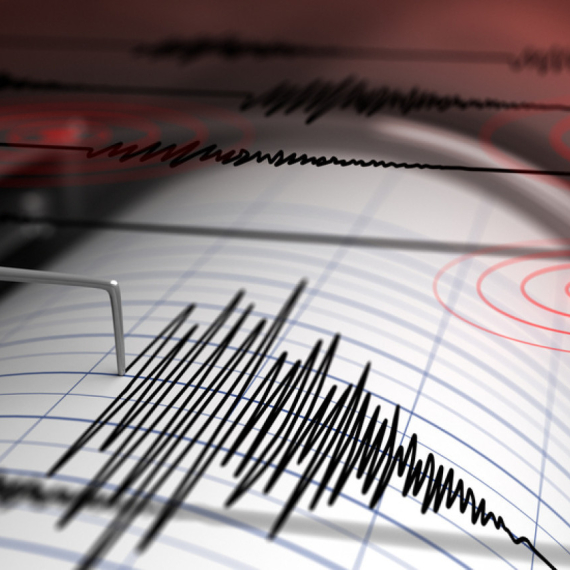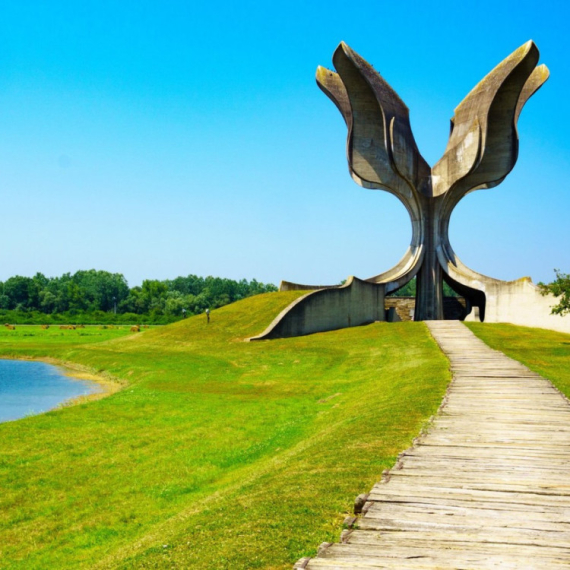"ICJ will see Kosovo proclamation as secession"
Foreign Minister Vuk Jeremić told B92 TV that he expects the ICJ to deem the Kosovo independence proclamation as a secession.
Monday, 30.11.2009.
09:54

Foreign Minister Vuk Jeremic told B92 TV that he expects the ICJ to deem the Kosovo independence proclamation as a secession. The debate on the legality of the Kosovo Albanian unilateral proclamation of independence will begin on December 1 before the ICJ. "ICJ will see Kosovo proclamation as secession" After listening to arguments from the countries that oppose and those that support the declaration made in February 2008, the International Court of Justice (ICJ) will give its advisory opinion that will not obligate states. The question sent to the court is as follows: Was the unilateral proclamation of independence of Kosovo by the temporary self-administration in Kosovo in accordance with international law? The question was forwarded to the ICJ last year after the UN General Assembly approved a Serbian initiative for doing so. There will be officials from 28 countries and the Kosovo authorities presenting their arguments until December 11. Jeremic told B92 that Belgrade is optimistic that the ICJ’s decision will be in its favor. “This will be a historic process. There have never been more countries signing up to participate in a public debate, and never all five permanent members of the UN Security Council. This is a result of hard diplomatic work by all Serbian state institutions and I can say that since the independence proclamation of February 17, 2009 until today, our battle for Kosovo has resembled a chess match,” Jeremic said. “We have reason to believe that the court will base its opinion solely on legal merits and will make a decision that will be in line with what we represent, and that is that the unilateral proclamation of independence by the temporary institutions on February 17, 2008 was an ethnically motivated effort of secession which represents a violation of international law,” Jeremic said. There is no time limit in which the ICJ must form its opinion, though the consultations of the 15 judges and ICJ President Hisashi Owada usually take months. Serbia's International law expert Tibor Varadi said that the court decision could be expected by next summer, that it will have an undeniable legal and moral weight to it, but also a great effect on future political moves.
"ICJ will see Kosovo proclamation as secession"
After listening to arguments from the countries that oppose and those that support the declaration made in February 2008, the International Court of Justice (ICJ) will give its advisory opinion that will not obligate states.The question sent to the court is as follows: Was the unilateral proclamation of independence of Kosovo by the temporary self-administration in Kosovo in accordance with international law?
The question was forwarded to the ICJ last year after the UN General Assembly approved a Serbian initiative for doing so.
There will be officials from 28 countries and the Kosovo authorities presenting their arguments until December 11.
Jeremić told B92 that Belgrade is optimistic that the ICJ’s decision will be in its favor.
“This will be a historic process. There have never been more countries signing up to participate in a public debate, and never all five permanent members of the UN Security Council. This is a result of hard diplomatic work by all Serbian state institutions and I can say that since the independence proclamation of February 17, 2009 until today, our battle for Kosovo has resembled a chess match,” Jeremić said.
“We have reason to believe that the court will base its opinion solely on legal merits and will make a decision that will be in line with what we represent, and that is that the unilateral proclamation of independence by the temporary institutions on February 17, 2008 was an ethnically motivated effort of secession which represents a violation of international law,” Jeremić said.
There is no time limit in which the ICJ must form its opinion, though the consultations of the 15 judges and ICJ President Hisashi Owada usually take months.
Serbia's International law expert Tibor Varadi said that the court decision could be expected by next summer, that it will have an undeniable legal and moral weight to it, but also a great effect on future political moves.


















































Komentari 39
Pogledaj komentare